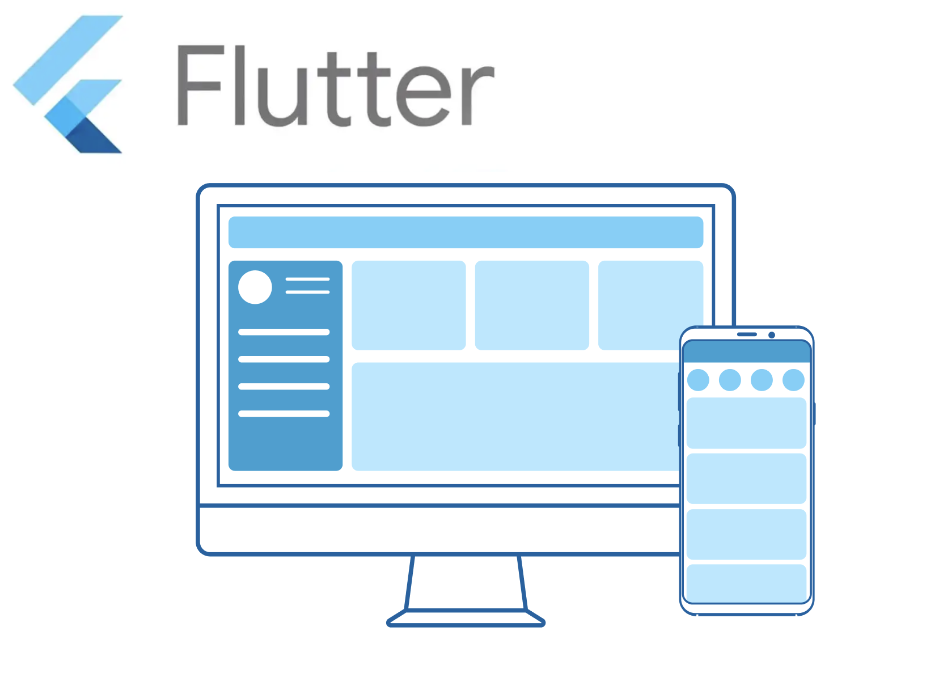Your guide: How to connect Cloudflare domain with Flutter web?
A lot of people know about Cloudflare, a service that makes websites faster and safer. It filters traffic and speeds up information delivery between your users and your server as a reverse proxy. Developers can use Flutter Web to make web apps from a single set of code, though. This means that app makers can make apps quickly that give users a great experience. So, if you’ve ever wondered, “How to connect Cloudflare domain with Flutter web?” you’re in luck. Keep reading to find out more.
Also read: How to Connect Cloudflare Domain to Squarespace?


Good Things About Cloudflare
Several good things happen when you connect Cloudflare to your Flutter web app:
- Cloudflare keeps your site safe from DDoS attacks, which means it is safer.
- It works better because the CDN lowers latency by caching content in different places around the world. This way, users can be sure that pages load quickly.
- SSL support: Setting up SSL helps keep the data sent between your computer and users safe.
- Azure Cloudflare tells you about traffic patterns that help you figure out how people use your site.
Why should you choose Flutter Web?
There are several things that make Flutter Web different:
- Time savings: You only need to write code once to use it on many computers. This saves you time and work.
- User Interfaces: The Flutter icon library lets developers make apps that look good.
- Rapid Development: The hot reload tool speeds up development by letting developers see changes right away.
If you haven’t already, make a Cloudflare account.
- Flutter SDK: Get the Flutter SDK on your computer so you can build your web app.
- Code Editor: Use a code editor like IntelliJ IDEA or Visual Studio Code for your Flutter apps.
- Version control: Set up Git to make it easy to see the differences between the different versions of your project.
- Use Firefox or Internet Explorer: To test your app, you need a modern web browser like Chrome or Firefox.
Setting up the right conditions for growth
Here are some steps that will help you set up your workspace:
- Get Flutter: Get the Flutter SDK from the official page. After that, put it in.
- Set Up Path: Add Flutter to your system path to make it easy to get to.
- Start up a Code Editor: Choose a code editor you like and start it up.
- Add Flutter Extensions: Put the Flutter and Dart extensions on your code editor to make your work better.
- Check how it was installed: Type “flutter doctor” into your computer to make sure everything is set up correctly.
- Once everything is set up, you can add your Cloudflare domain to your Flutter web app.


Setting up Cloudflare for a domain name
You have to sign up for your Cloudflare domain on their site before you can connect it to Flutter Web. I know this seems hard, but it’s not that hard once you break it down into steps you can handle.
Going to Cloudflare and making an account
First, do these things at Cloudflare.com:
- Click the “Sign Up” button in the upper right corner.
- Make a strong password and type in your email address.
- Once you’ve clicked “Create Account,” Cloudflare will send you an email with a link that you need to click to confirm your account.
- Click the “Verification” link to get your account to work.
How to Make Cloudflare Work with Your Domain
Once you’re sure your account is real, go to Cloudflare and add your domain:
- On the Cloudflare home page, click the “Add a Site” button.
- In that field, type in your domain name. Then, click “Add Site.”
- The Cloudflare team might need a moment to look over your DNS records.
- Make sure the DNS records are correct. You can change or add records whenever you want.
- If you’re happy with the DNS records, click Next.
- Choose a plan from Cloudflare that works for you. The free plan is enough for most people.
- Click the “Confirm Plan” button.
- Cloudflare will give you name servers. These numbers should be changed to match the nameservers that your domain registrar uses.
- To finish the process, go back to Cloudflare, click “Done,” and then check the nameservers.
This could spread for up to 24 hours.
Once the nameservers are changed, Cloudflare will log in to your site.
Setting up the DNS for your Flutter web app
Your Cloudflare name needs to be linked to your Flutter web app. The next step is to set up DNS. This makes sure that people find your web app the right way.
How to Look at DNS Records?
For people to find your website, DNS records are very important. Most people use these kinds of DNS records:
- A Record connects a name to an IP address.
- A CNAME record connects two names. This is often used for subdomains.
- A mail server’s MX record tells email to go there.
- This is a TXT record that gives outside sources more information.
Setting up your Flutter web app’s DNS records
To add the DNS records, do the following:
- Sign in to your Cloudflare account.
- Choose the domain you want to set up.
- Go to the DNS tab on the home page.
- Click on “Add Record.”
- You can add an A, CNAME, or other type of DNS record.
- Fill in the blanks:
- Type: Pick a record type, such as A, CNAME, or something else.
- Name: Type in the name of your domain or child domain, like www.
- It has: Type in the site or IP address you want to go to.
- TTL: Pick a number for the time-to-live.
Here’s how to add an A Record:
- Name: @ Kind: A
- It reads 192.0.2.1 TTL: On
- The Cloudflare domain will be linked to your Flutter web app as soon as you add the DNS records. This will let people view it online.
Putting together your web app in Flutter
Now that your name is set, you can start making your Flutter web app. You will learn how to make a new Flutter project and get it ready to go live on the web in this section.


Also read: How to Run Homelab Setup Through Cloudflare?
Getting a fresh Flutter project ready
To make a new Flutter project, follow these steps:
- Open your terminal or command window to begin.
- Type these words: flutter Run create my_flutter_web_app to start a new project.
- Copy and paste my_flutter_web_app into the project folder to get there.
- Now that your brand-new Flutter project is set up, you can start working on it.
Getting ready to post something on the web
Before you launch your Flutter app, make sure it can work on the web:
- You can make the web work by running flutter config –enable-web.
- To find out what devices are available, type flutter devices. There should be a web device on the list.
- To make your web app, type flutter build web.
- The build files will be made in the build/web area and are now ready to be sent out.
- You can put your Flutter web app on Cloudflare now that it’s done being built.
Getting Cloudflare set up for your Flutter web app
This is a very important step that can make your Flutter web app run much faster. Here are the steps you need to take to send Cloudflare your built app.
Setting up Cloudflare to host files
First, make sure your web app built with Flutter is ready to use. Go to your terminal and type the following:
With this command, the files you need are made in the build/web area. After that, sign in to your Cloudflare account. Then, go to the part called Pages:
- From the list of projects you can make, choose Direct Upload.
- You can drag and drop the files from the build/web folder into the uploading area.
- As well as index.html and any other assets, make sure that all of your files are posted correctly.
Setting up pages on Cloudflare
You’ll need to set up Cloudflare Pages after you’ve uploaded your files:
- Go to the Settings tab on the project’s home page.
- Type “flutter build web” to make something.
- Pick the directory where the work will go as build/web.
- You can set up the Custom name by adding your name to the list of domains if you already have one. Cloudflare wants you to check who owns the domain.
- Finally, click “Deploy” to run your Flutter web app.
- Your Flutter web app is now live on Cloudflare, where it will run faster and be safer.
Check your connection and fix any issues you find
After you connect your Cloudflare domain to your Flutter web app, you should test the connection to make sure everything is fine. You will learn how to check DNS propagation and fix common issues in this section.
Conclusion
A domain from Cloudflare can connect to a web app built with Flutter. This is a simple step that can make speed and safety much better. You can improve your web app and make sure the connection works well by following the steps in this guide. Have fun writing for your Flutter web project and make the most of Cloudflare’s powerful tools!










